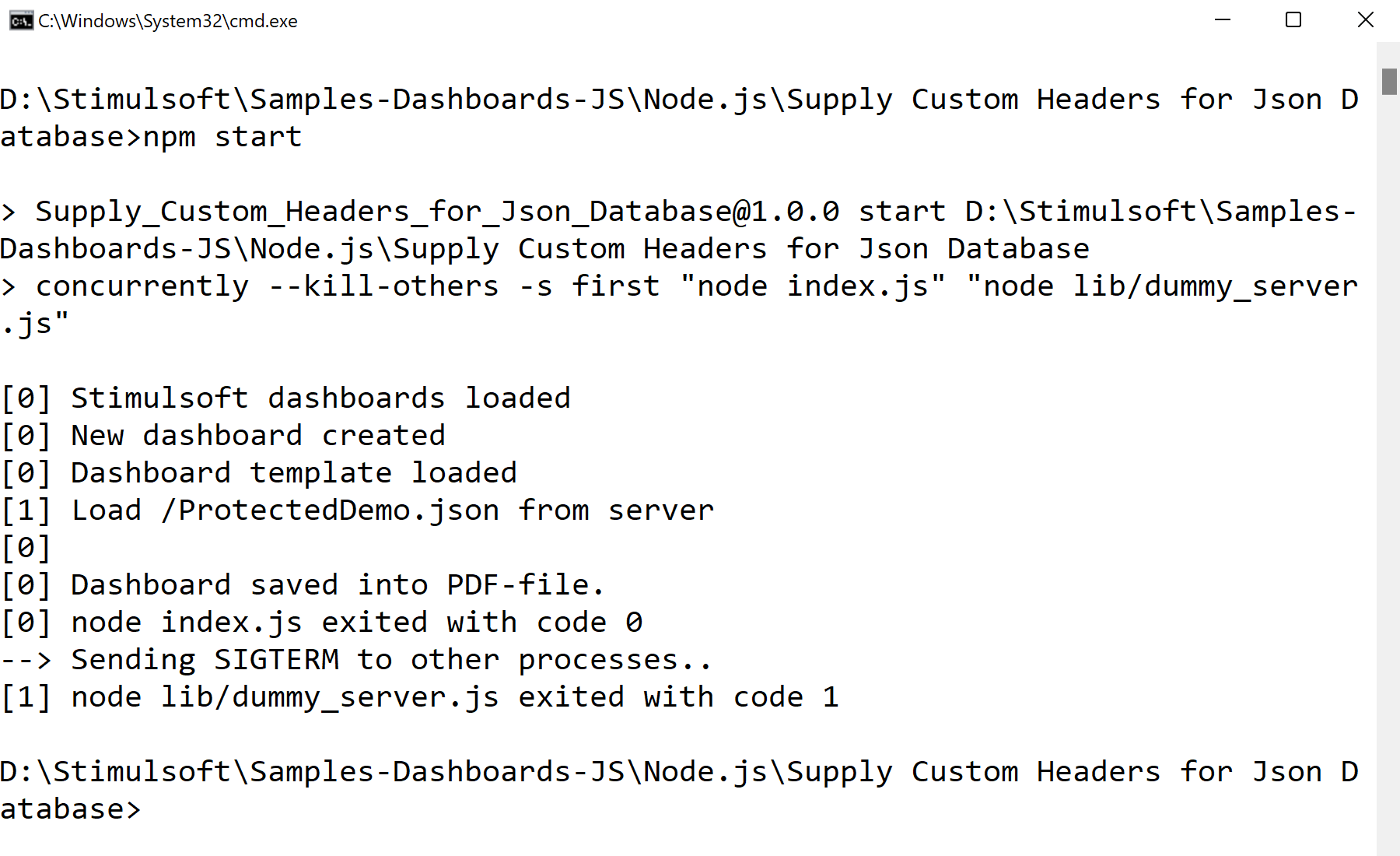This example illustrates loading of the dashboard that uses json database from some web-server and accessible only by suppliing custom HTTP header. That dashboard is rendered and result is stored to the pdf-file.
Installation and running Use npm to install requred modules:
$ npm install
Run Sample:
$ npm start
Step by step Stimulsoft Dashboards.JS module loading:
var Stimulsoft = require('stimulsoft-dashboards-js');
Creating new dashboard:
var report = Stimulsoft.Report.StiReport.createNewDashboard();
Add onBeginProcessData event handler and set necessary headers:
report.onBeginProcessData = function (args) {
if (
args.database === "JSON" &&
args.command === "GetData" &&
args.pathData && args.pathData.endsWith("/ProtectedDemo.json")
) {
// Add custom header to pass through server protection
args.headers.push({key: "X-Auth-Token", value: "*YOUR TOKEN*"});
}
};
Loading sample report template:
report.loadFile("DBSsimp.mrt");
Export to PDF:
report.exportDocumentAsync((pdfData) => {
// Converting Array into buffer
var buffer = Buffer.from(pdfData);
// File System module
var fs = require('fs');
// Saving string with rendered dashboard in PDF into a file
fs.writeFileSync('./Dashboard.pdf', buffer);
}, Stimulsoft.Report.StiExportFormat.Pdf);
На скриншоте ниже Вы можете увидеть результат выполнения данного кода:
